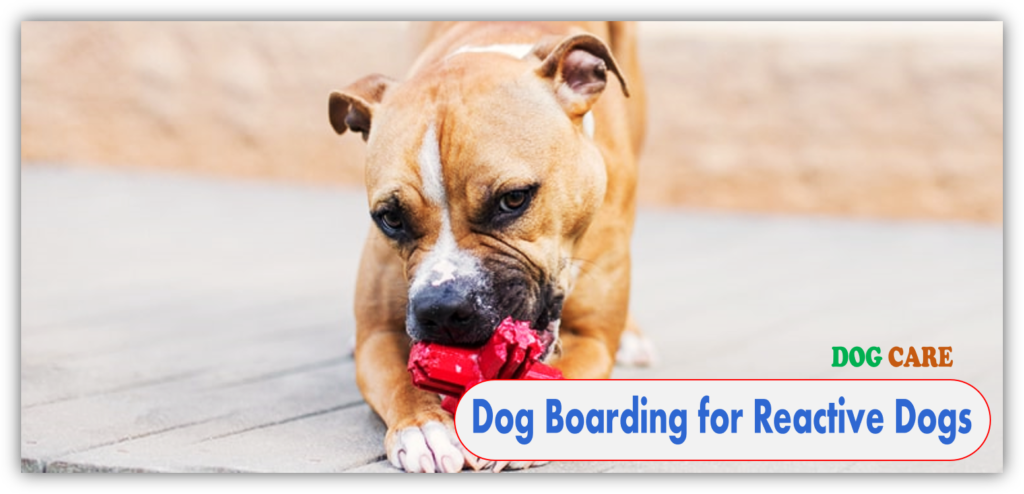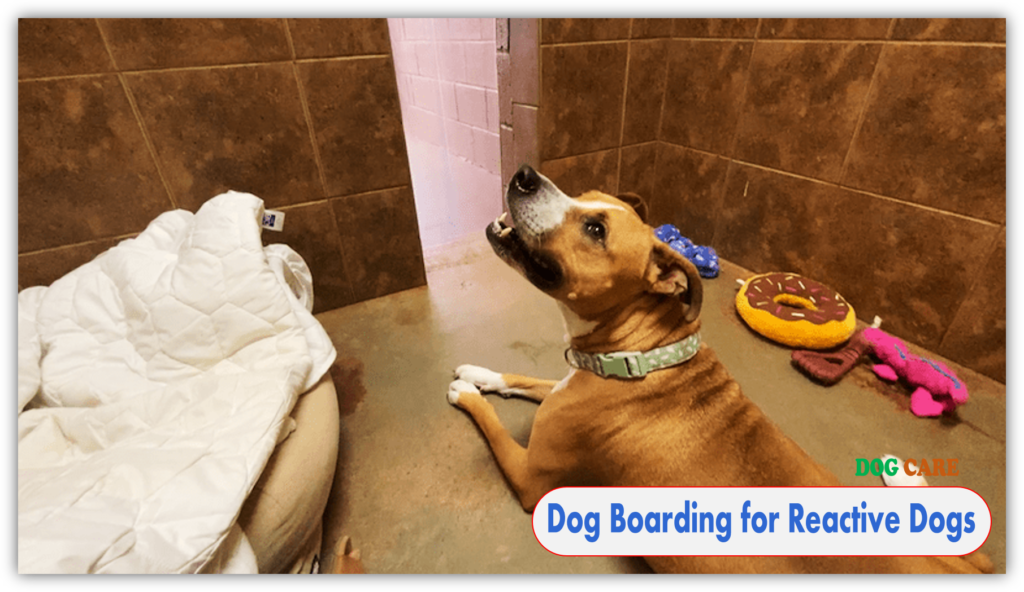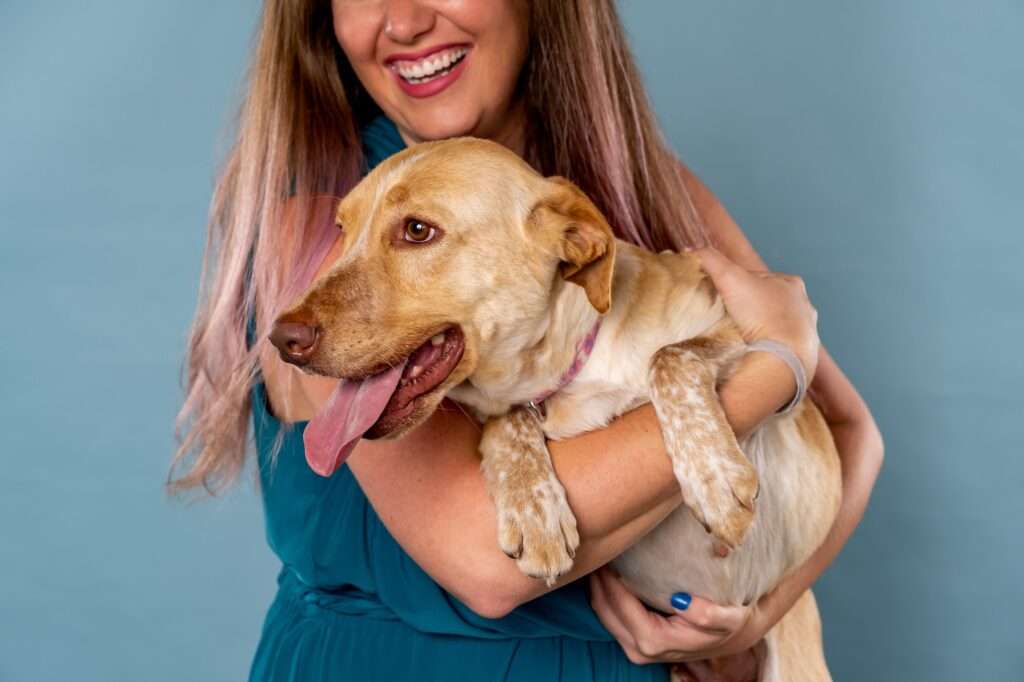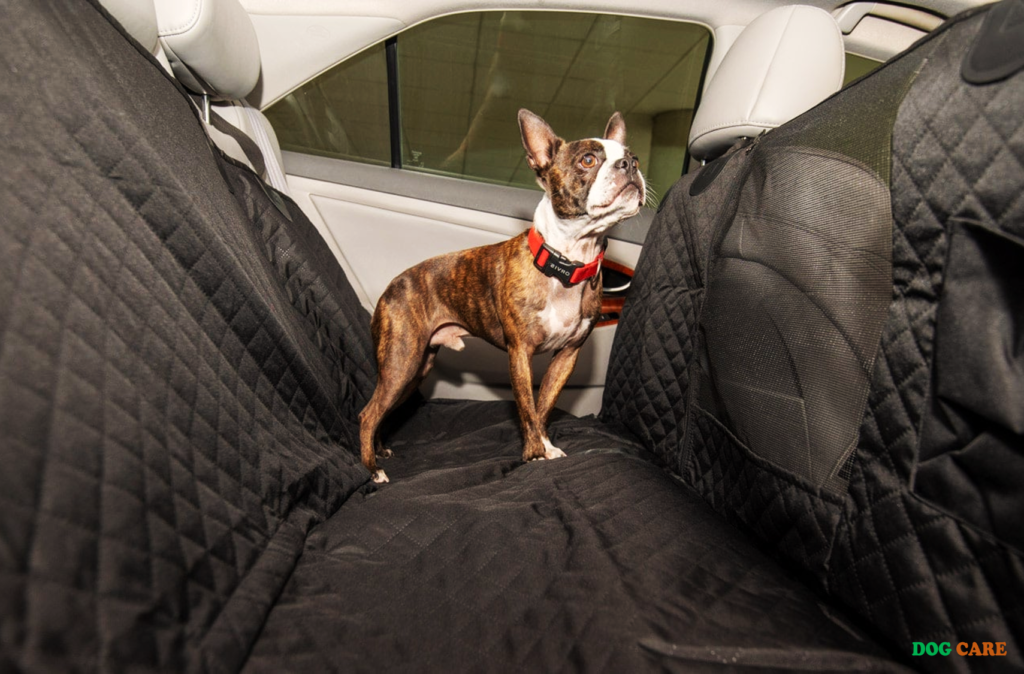Dog Boarding for Reactive Dogs provides a safe and supervised environment for dogs with behavioral issues. It ensures their well-being and allows their owners to have peace of mind while they are away.
Finding suitable accommodations for dogs with reactive behavior can be challenging for pet owners. Reactive dogs are those that display aggressive or fearful behavior in response to certain triggers. This can make it difficult for their owners to leave them in traditional boarding facilities, where they may be exposed to situations that could worsen their reactive tendencies.
However, dog boarding facilities specifically designed for reactive dogs offer a solution. These specialized facilities provide a safe and controlled environment where trained professionals understand and cater to the unique needs of reactive dogs. By opting for such boarding options, owners can ensure the well-being of their pets and have the peace of mind they need when they are away.

Understanding Reactive Dogs
Reactive dogs can exhibit challenging behavior, which can make providing them with appropriate care a bit more complicated. It’s important for pet owners to understand what reactive dogs are and how to navigate their unique needs. In this article, we will explore what reactive dogs are, common triggers for their reactive behavior, and tips for ensuring their comfort during dog boarding.
What Are Reactive Dogs?
Reactive dogs are those who overreact to certain stimuli in their environment. This can manifest as aggressive behavior, including barking, growling, lunging, or even biting. These reactions are often triggered by specific situations or elements that cause the dog to feel threatened or anxious.
It’s essential to note that reactive behavior is not always indicative of an inherently aggressive dog. Many reactive dogs have underlying fears, lack socialization, or experienced trauma that has contributed to their reactive tendencies. Understanding these underlying causes is key to effectively managing their behavior.
Common Triggers For Reactive Behavior
Reactive behavior can be triggered by a variety of situations or stimuli. By identifying these triggers, dog owners can be proactive in preventing or diffusing reactive episodes. Here are some common triggers:
| Triggers | Explanation |
|---|---|
| Noises | Loud or sudden noises like thunderstorms, fireworks, or traffic can startle reactive dogs, triggering their reactive behavior. |
| Other dogs | Reactive dogs may feel threatened or anxious when they encounter other dogs, especially if they had negative experiences in the past. |
| Crowded places | Being in overcrowded places can overwhelm reactive dogs, leading them to react defensively due to feeling trapped or uncomfortable. |
| Strangers | Approaching unfamiliar people can trigger reactive behavior in dogs who are wary of strangers. This may stem from a lack of socialization or previous negative encounters. |
Recognizing these triggers and anticipating potential reactive situations is essential in minimizing the risk of incidents. It’s also crucial to work with a professional trainer or behavioral specialist to develop strategies for managing reactive behavior effectively.
When it comes to ensuring the well-being of reactive dogs during dog boarding, it’s vital to consider their unique needs and triggers. Providing a calming environment, maintaining routines, and minimizing exposure to potential triggers can help make their stay as comfortable as possible.
Challenges Of Dog Boarding For Reactive Dogs
When it comes to finding suitable boarding options for reactive dogs, there are several challenges that owners need to consider. Reactive dogs, with their heightened sensitivity to certain triggers, require extra attention, care, and a safe environment to ensure their well-being and the well-being of those around them.
In this article, we will delve into the challenges associated with dog boarding for reactive dogs, including safety concerns, limited boarding options, and the additional stress that reactive dogs may experience in unfamiliar surroundings.
Safety Concerns
Safety is paramount when boarding a reactive dog. These dogs may have strong reactions to certain stimuli, which can pose risks for them and others. It is crucial to find a boarding facility that takes safety measures seriously and has experience handling reactive dogs. From properly securing enclosures to providing trained staff who understand the specific needs of reactive dogs, safety should be the top priority in any boarding environment.
Limited Boarding Options
One of the major challenges faced by owners of reactive dogs is the limited number of boarding options available. Not all boarding facilities are equipped to handle the unique needs of reactive dogs. Many traditional boarding facilities may not have the necessary resources or expertise to provide a safe and comfortable environment for these dogs. As a result, finding suitable boarding options requires diligent research and often involves a limited number of specialized facilities that cater specifically to reactive dogs.
Additional Stress On Reactive Dogs
Reactive dogs can experience heightened levels of stress in unfamiliar environments. For dogs that already struggle with reactivity, the change in surroundings, routines, and the presence of other dogs can amplify their anxiety. Being away from familiar smells, sights, and sounds can destabilize reactive dogs, making them more prone to displaying reactive behaviors. It is crucial for boarding facilities to take proactive measures to minimize stress for reactive dogs, such as providing quiet areas, familiar toys, and implementing predictable routines that mimic a home-like environment.
Benefits Of Dog Boarding For Reactive Dogs
Dog boarding for reactive dogs provides a safe and controlled environment for them to stay while their owners are away. This eliminates potential triggers and allows them to receive specialized care and attention from trained professionals.
Professional Supervision And Expertise
When it comes to boarding your reactive dog, professional supervision and expertise play a crucial role in ensuring their safety and well-being. This is especially important for dogs that exhibit reactive behaviors towards other dogs or strangers. During their stay at a professional dog boarding facility, trained staff members are able to closely monitor and manage your dog’s reactions, providing a safe and controlled environment.
While you might be hesitant to leave your reactive dog in the care of someone else, professional dog boarders have extensive experience and knowledge dealing with reactive dogs. They understand their unique needs and are equipped to handle any challenging situations that may arise. Having professionals around gives you peace of mind, knowing that your dog is in capable hands.
Socialization Opportunities With Trained Dogs
Another major benefit of dog boarding for reactive dogs is the opportunity for socialization with other trained dogs. Many boarding facilities offer supervised playtime sessions where dogs can interact and socialize with each other in a controlled manner. Interacting with well-behaved and trained dogs can help your reactive dog learn and adapt better to social situations, improving their overall behavior and confidence.
During these socialization sessions, boarding staff members are able to closely monitor interactions and intervene if necessary, ensuring that your dog’s experience is positive and stress-free. By exposing your reactive dog to calm and trained companions, they can gradually learn to overcome their reactivity and become more comfortable around other dogs and people.
Controlled Environments To Manage Triggers
Reactive dogs often have triggers that can set off their reactive behaviors. These triggers can include new environments, unfamiliar dogs, or crowded places. When your reactive dog stays in a professional boarding facility, they are placed in a controlled environment where potential triggers can be minimized or effectively managed.
Boarding facilities have designated areas and separate playgroups for dogs with reactive tendencies, reducing the likelihood of triggering incidents. The staff members are trained to identify and prevent situations that may lead to reactive behavior, keeping your dog safe and comfortable.
In addition, the structured routines and calming environments of boarding facilities can help reduce your dog’s anxiety and stress levels. With consistent routines and familiar surroundings, your reactive dog can feel more secure and less likely to react negatively.
Finding A Suitable Boarding Facility
When it comes to boarding your beloved reactive dog, finding a suitable facility is of utmost importance. You want to ensure the boarding experience is both comfortable and safe for your furry friend.
Researching And Visiting Potential Facilities
Researching and visiting potential facilities is the first step to finding the right boarding facility for your reactive dog. Take the time to search for facilities that specialize in caring for dogs with reactive behavior. Look for reviews and recommendations from other dog owners who have had similar experiences. Once you have a list of potential facilities, make sure to schedule a visit to each one.
Oftentimes, websites may not provide enough information, so visiting the facility will give you a better understanding of its suitability for your reactive dog. In addition, walking through the facility and observing the environment will help you gauge whether it meets your expectations.
Asking The Right Questions
During your visit, it’s crucial to ask the right questions to get a clearer picture of how the facility can accommodate your reactive dog. Here are some key questions to consider:
- How do you handle reactive dogs?
It’s important to understand the methods and strategies that the facility employs to handle reactive dogs. Ensure they have experience in handling reacti
Preparing Your Reactive Dog For Boarding
Prepare your reactive dog for boarding by following these tips. Get them accustomed to the boarding facility, introduce them to staff and other dogs, and provide clear instructions to ensure a smooth and stress-free experience.
A Positive Reinforcement Training Approach
Prior to sending your reactive dog for boarding, it is crucial to engage in positive reinforcement training. This method focuses on rewarding desired behaviors, rather than punishing unwanted ones. This approach allows your canine companion to associate good behavior with positive outcomes, creating a foundation for a more positive boarding experience.
Gradual Exposure To The Boarding Environment
To ensure a smooth transition for your reactive dog, it is important to gradually expose them to the boarding environment. Begin by taking your dog to visit the boarding facility in short, controlled sessions. Allow them to explore the space, familiarize themselves with the sights and smells, and introduce them to the staff members. This gradual exposure will help to reduce anxiety and acclimate your dog to the new surroundings.
Creating A Familiar And Comforting Routine
Establishing a familiar and comforting routine is key to preparing your reactive dog for boarding. Dogs thrive on routine and predictability, so try to replicate their daily routine as closely as possible during their stay. Provide the boarding facility with detailed instructions about feeding, exercise, and any specific requirements or triggers for your dog. This will help maintain a sense of familiarity and security, reducing stress for your reactive dog.
Throughout the preparation process, remember to remain patient and understanding. Reactive dogs require extra care and attention, and by approaching the boarding experience with a positive reinforcement training approach, gradual exposure to the environment, and a comforting routine, you can ensure that your furry friend has a safe and comfortable boarding experience.
Tips For A Successful Dog Boarding Experience
When it comes to boarding your reactive dog, it’s important to take certain steps to ensure a successful experience. These tips will help you provide detailed instructions and information, bring familiar items from home, and stay in touch with the boarding facility. By following these recommendations, you can help your reactive dog feel safe and comfortable while you’re away.
Providing Detailed Instructions And Information
To ensure that the boarding facility understands your dog’s specific needs, it’s crucial to provide them with detailed instructions and information. This includes any triggers or fears your dog may have, dietary restrictions, medication schedules, and any training techniques that are effective for them. The more information you provide, the better equipped the facility will be to care for your reactive dog.
Bringing Familiar Items From Home
One way to help your reactive dog feel more at ease during their boarding stay is to bring familiar items from home. This could include their bed, blanket, toys, or even an article of clothing with your scent on it. These familiar scents and objects can provide comfort and familiarity, reducing anxiety and helping your dog adjust to their new surroundings.
Staying In Touch With The Boarding Facility
During your dog’s boarding stay, it’s important to stay in touch with the facility to ensure everything is going smoothly. This can be done through regular phone or email check-ins. Keeping communication open allows you to address any concerns or provide updates on your dog’s behavior or special needs. It also reassures you that your dog is in good hands, giving you peace of mind while you’re away.

Frequently Asked Questions On Dog Boarding For Reactive Dogs
Will Boarding Kennels Take Reactive Dogs?
Yes, some boarding kennels accept reactive dogs, but it’s essential to check with each facility individually.
How Do You Go On Vacation With A Reactive Dog?
To go on vacation with a reactive dog, plan carefully and consider these tips. Research dog-friendly destinations and accommodations. Prepare your dog by gradually exposing them to new environments. Bring essential supplies, like a leash and treats. Consult a professional trainer if needed.
Always prioritize your dog’s safety and comfort.
Can Dog Aggressive Dogs Be Boarded?
Yes, dog aggressive dogs can be boarded. Boarding facilities have experience handling and managing aggressive dogs to ensure their safety and the safety of other dogs. Personalized care and professional training can help them socialize effectively during their stay.
How Do You Board A Fearful Dog?
To board a fearful dog, use positive reinforcement training, gradually exposing them to the boarding environment. Establish a routine, maintain a calm atmosphere, and provide a comfortable space. Use treats and rewards to create positive associations. Seek professional help if needed.
Conclusion
Finding a dog boarding facility that caters to reactive dogs is essential for their safety and well-being. By understanding their unique needs and providing a secure and structured environment, you can ensure a positive experience for both you and your furry friend.
Remember to communicate openly with the facility staff, provide them with necessary information, and trust in their expertise. With the right boarding facility, you can enjoy peace of mind knowing that your reactive dog is in good hands while you are away.


